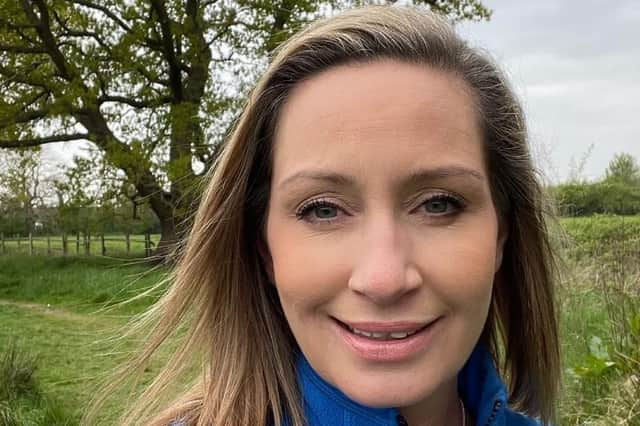Nicola Bulley: report into police handling of case published as Lanchashire Police and diving expert Peter Faulding criticised


A new report into the police handling of the Nicola Bulley case has been published, with Lancashire Police criticised for its decision to disclose her personal struggles publicly.
The disclosure of personal information including Ms Bulley's health was described as “avoidable and unnecessary” in The College of Policing's report into the matter. The information was released to the media by Lanchashire Police after Ms Bulley, a 45-year-old mother-of-two, went missing while walking her dog in St Michael’s on Wyre, Lancashire, on January 27 2023.
Advertisement
Hide AdAdvertisement
Hide AdMs Bulley's body was later found in the River Wyre on February 19. An inquest concluded that her death was accidental, ruling that she had fallen into the river on the day she went missing and died almost immediately.
Lancashire Police's decision to release medical information about Ms Bulley was widely criticised, with Prime Minister Rishi Sunak even questioning the move. At the time, interest in the case was extremely high, with consistent media coverage of her disappearance and even amateur detectives turning up to the scene to carry out their own investigations, despite police warnings to stay away.
The report itself said that while the force had handled the missing persons case itself well, officers had lost control of the public narrative of the case at an early stage in the investigation. It detailed that senior officers had failed to brief mainstream accredited reporters correctly due to a breakdown of trust between the two camps, which led to an information vacuum and unchecked speculation.
Chief Constable Andy Marsh, who leads the College of Policing, said: “Throughout our work we have had Nicola’s family and friends in our thoughts. The purpose of the review was not to attribute blame but identify areas of learning for the constabulary and wider policing.
Advertisement
Hide AdAdvertisement
Hide Ad“The decision to not call the investigation a critical incident, despite it meeting the national definition, set the tone within the constabulary and led to several challenges. The most notable of these was the way the constabulary released personal information about Nicola which was avoidable and unnecessary.
“While we have not shied away from criticism, there are also many areas of Lancashire Constabulary’s response that should be commended, including an exemplary investigation and a well-conducted search. At the heart of the investigation was Nicola. I am left in no doubt that she and her family were foremost in the minds of officers and staff throughout the search.”
The same report also said that underwater search expert Peter Faulding offering advice "caused challenges to the investigation". Mr Faulding told the media during the search for Ms Bulley that the police were using "low-tech" diving equipment in their search of the River Wyre and as a result would be unable to find a body.
Mr Faulding's comments caught the attention of Ms Bulley's family who had contacted Mr Faulding's underwater search expert group Specialist Group International (SGI) to help with the search and asked police to get them involved. However, police were advised that the equipment used by divers at SGI was no better than that which could be procured by officers.
Advertisement
Hide AdAdvertisement
Hide AdIt was then communicated to police by Ms Bulley’s family friend that a “strong message that refusal to use Mr Faulding and SGI” would result in a “negative press release to the media”. The reports stated that this put Lancashire Police in an awkward situation concerning the possible implication of a widespread negative perception that the force was not using every opportunity to locate Ms Bulley and, as a result, an erosion of trust with the public.
The report said: “It is the view of Lancashire Constabulary that Mr Faulding had a significant impact on the investigation and public confidence through his activities and his engagement with the media. The review team considers that some of his actions created a more challenging environment for the investigation team. His public statements often contradicted the investigative and operational approach, leading to confusion for the public and reducing the family’s trust in the investigation and search operation.”
Mr Faulding or SGI have yet to comment on the report. Ms Bulley's family have said that they still do not wish to comment on the report.
